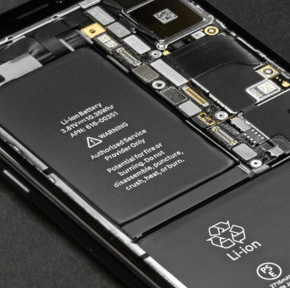In a rapidly electrifying world, an expanding number of consumer products, transportation platforms and systems are relying more and more on batteries. To be competitive in this market OEMs need to deploy the very best versions of their batteries.
However, batteries are incredibly complicated things, and they require rigorous management to ensure that they perform safely, and endure through the whole of the warranty period once released to the hands of a consumer. Achieving this scenario is a key function of the battery management systems.
The battery management system (BMS), as every engineer knows, is meant to ensure that the battery operates safely for the duration of its application life. In the EV age, new challenges arise here. Since EV battery warranties are heading towards 10 years or 10,000 miles, the EV BMS system needs to be more robust than ever.
How to accomplish this? OEMs must deploy every EV with a BMS that can meticulously monitor and control the battery, maintaining tight voltage, current, and temperature restrictions in all application scenarios. To do this, they need to test and analyze BMSs better and faster than ever before. In short, the legacy approach to the BMS is no longer sufficient.
The Limits of Legacy Battery Management
System Development
In general, designing battery management systems comes down to two phases: first, designing (or selecting) the hardware of the BMS; second, writing the algorithms for the battery management system software. The development of a BMS algorithm involves considerable, managed testing of the battery to thoroughly characterize its behavior.
Many dozens or even hundreds of battery cells are tested during BMS development. This involves charging and discharging them at different rates, operating them at different temperatures, applying a variety of pulse loads, and “cycling” them repeatedly to see how their performance changes as they age. This comprehensive testing creates vast amounts of data, which must be processed and analyzed in order to create a complete picture of how the battery should be operated throughout its service life. More testing follows once the BMS is in place, to verify that the full system is working properly.
Historically, all of this data processing and analysis has been performed by teams of engineers sifting through the data with spreadsheets. In our experience, around 90% of a BMS engineer’s “algorithm development” tasks entailed manual organization and organizing of all of this data. Indeed, data volumes are such a barrier that BMS engineers actively limit the amount of battery testing they perform for fear of not being able to handle all of the data promptly. And it was common practice to only use the most basic parameters of battery performance to inform BMS algorithms.
The Advantage of EBI-Powered Battery Management Systems
EBI (Enterprise Battery Intelligence) enables EV companies to optimize and accelerate the deployment of their battery management systems.
The process of gathering the extensive battery test data obtained during BMS development can be easily automated by an EBI platform. An EBI tool can smoothly process data to derive key performance indicators (KPIs) that fuel BMS control algorithms. Insights can go far beyond the fundamentals, because EBI computes dozens of additional metrics that provide deeper insight into battery activity.
With this tool in hand, engineers can ditch the laborious, spreadsheet-based approach. And by avoiding manual data processing, BMS engineers can focus on what matters: creating and validating battery control algorithms. When engineers are no longer sorting through masses of data, testing can be broadened to analyze a broader range of application scenarios, or to test at a higher resolution in search of a more precise SOH calculation for regulatory compliance. They can better seek out ways to speed up charging or extend vehicle range – resulting in an overall better product, and better customer experience.
An After-Sale Value Bonus
There are further benefits, too. During the post-sale phase, a BMS can provide a critical link to strong remote computing resources that deliver additional value to drivers. However, while a BMS keeps some log of the battery’s performance, onboard data storage capacity usually limits the length or resolution of the log that can be stored locally. Add a cloud-based EBI platform into the mix, and things immediately improve. In this scenario, when data from the entire fleet of customer devices is gathered and evaluated, an EBI system can:
- Monitor the battery and rapidly detect any safety issues not anticipated in the original design
- Anticipate necessary maintenance well ahead of time
- Better understand product and user behavior, to improve future product improvement
- Improve battery (and product) performance in-situ
- Proactively avoid safety incidents through an over-the-air (OTA) update
Supercharging Battery Management Systems
Battery management systems are a crucial component of any EV. A cloud-connected BMS, combined with an EBI solution, can provide you with the information you need to ensure your battery remains healthy for the entire lifecycle of your product. While the computing power of BMS will undoubtedly expand over time, the true next-level value comes from aggregating data from across your client fleet and employing an EBI capability to drive best-in-class performance and a superior customer experience.
Contact Voltaiq and optimize your BMS strategy today!
Related Posts
Subscribe to the Building Better Batteries Newsletter.
Written for battery engineers and leaders in the battery industry. Find resources, trends, and insights from some of the world's top battery experts.










